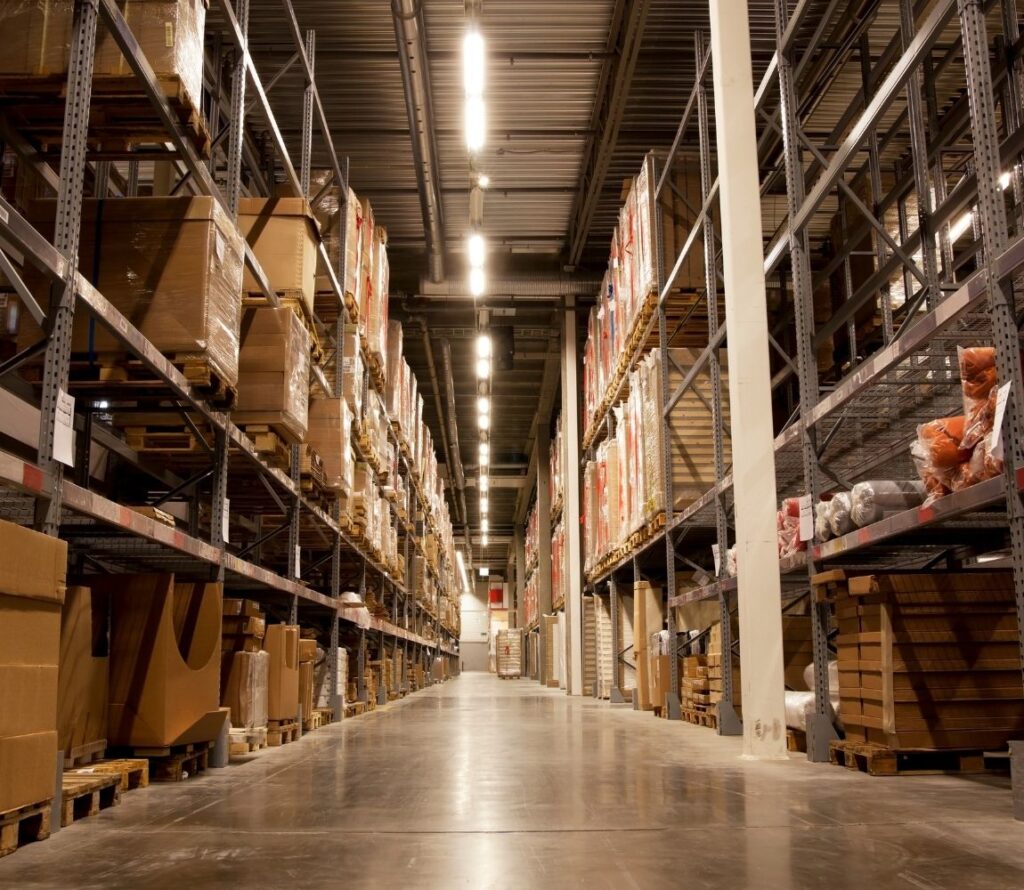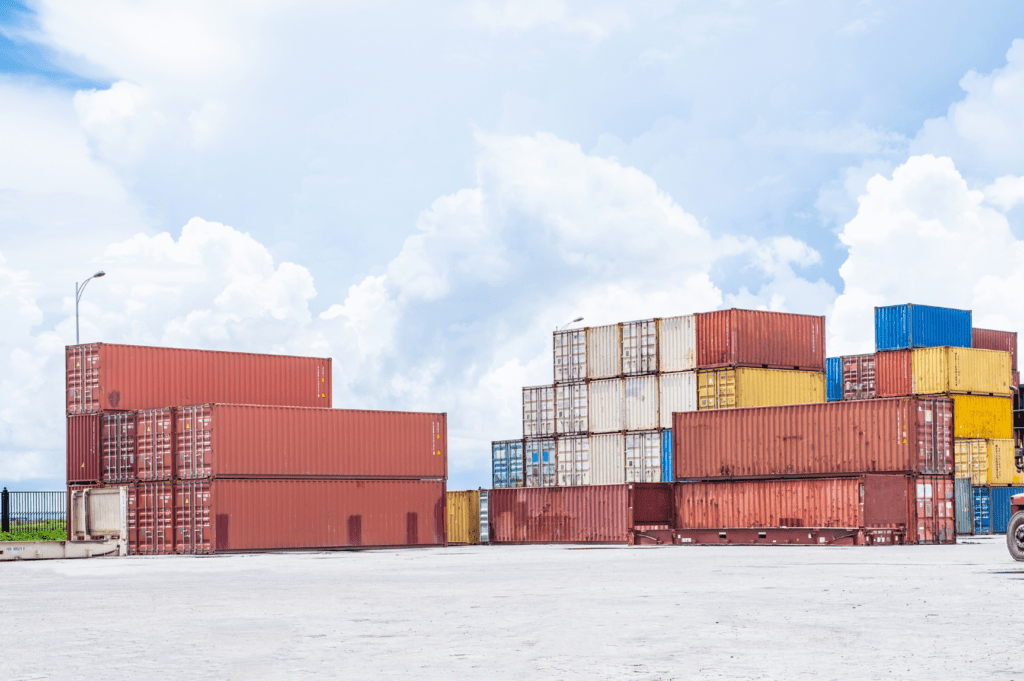FTZ WAREHOUSE SOLUTIONS FOR IMPORT & EXPORT BUSINESSES
Find Your Ideal Foreign Trade Zone Warehouse - Nationwide Network
Find Your Ideal FTZ Warehouse – streamline your global operations with nationwide foreign‑trade zone (FTZ) warehousing. FTZ warehouses are areas within the United States that are considered outside U.S. customs territory for duty purposes. This means you can store, inspect, repackage or even assemble goods without paying duties until they enter U.S. commerce. OLIMP’s FTZ network helps you reduce or eliminate import duties, accelerate transit times and maintain compliance.
- Nationwide network: strategic locations near major ports, airports and trade hubs.
- Save on duties and taxes: defer or eliminate duty payments to preserve cash flow.
- Secure & compliant: fully supervised facilities with advanced inventory control.
Why Choose an FTZ Warehouse?
What is an FTZ warehouse?
A foreign‑trade zone (FTZ) warehouse is a secure, designated area within the United States that exists outside U.S. customs territory. Under U.S. Customs and Border Protection supervision, businesses can import inventory without paying duties or taxes until the goods are sold. You can store, inspect, repackage and even manufacture products without immediate customs charges.
Key Benefits
- Duty deferral or elimination: Goods remain in a “duty‑suspension” state; you pay duties only when products enter U.S. commerce. This dramatically improves cash flow, allowing businesses to reinvest capital.
- Avoiding certain tariffs and taxes: FTZs let you avoid U.S. duties on goods destined for international customers and benefit from inverted tariffs when finished products have lower duty rates than components.
- Operational flexibility: Within an FTZ you can perform light manufacturing, assembly, kitting and packaging without triggering duties. Defective goods can be destroyed without additional duty costs.
- Streamlined customs processes: Weekly customs entries, direct delivery from ports and simplified returns reduce paperwork and delays.
- Enhanced inventory control: FTZ regulations require real‑time tracking and quality control, leading to better overall inventory accuracy.
When an FTZ warehouse makes sense
FTZ warehousing is ideal for high‑volume importers, businesses that need long‑term storage, companies performing manufacturing or assembly, and merchants shipping internationally. Brands can use third‑party FTZ providers instead of operating their own facility; many 3PLs offer FTZ warehouses so you can benefit without handling the complex set‑up process.

Key Differences Between FTZ and Customs Bonded Warehouses
Bonded warehouses, introduced in the 1800s, provide secure storage for dutiable goods under government supervision. Duties are due when goods leave the warehouse for distribution, and they go through the usual Customs processes.
FTZ warehouses, established in the 1930s to boost global trade, are located in areas considered outside U.S. Customs territory. Goods stored in FTZs can move without going through formal Customs procedures, including import duties, until they enter U.S. commerce.
In summary, FTZ warehouses allow goods to be stored, manipulated, or manufactured without import duties, whereas Customs bonded warehouses only defer duties until goods leave the facility for distribution or re-export.

Comprehensive Warehousing & Logistics Services
OLIMP provides more than a place to store goods. We offer a full suite of warehousing and logistics solutions tailored to import/export businesses:
Nationwide FTZ Warehouse Network
- Strategic locations: Our FTZ warehouses are positioned near major U.S. ports, airports and trade hubs, minimizing transit times and import/export costs.
- Integrated transloading & cross‑docking: Speed up your supply chain with efficient transfer of goods between ocean, rail and truck; ideal for international shipments.
- Import warehouse solutions: Secure, compliant storage for inbound cargo with customs brokerage support and real‑time inventory visibility.
- Advanced inventory systems: Monitor stock levels, track SKUs and manage orders within our state‑of‑the‑art warehouse management platform.
- Flexible value‑added services: Kitting, labeling, light assembly and quality control performed within the FTZ, deferring duties until goods enter U.S. commerce.
- Regulatory compliance: Our facilities operate under the Foreign‑Trade Zones Act of 1934 and are supervised by U.S. Customs and Border Protection. We maintain robust security measures, record‑keeping and reporting to ensure full compliance.
Partner with an Experienced FTZ Warehouse Company
As one of the top FTZ warehouse companies, OLIMP combines warehousing expertise with flexible logistics solutions. Whether you’re a manufacturer, importer or exporter, we tailor our services to your business needs:
- Duty & tax optimization: Take advantage of duty deferral, elimination and inverted tariff relief.
- End‑to‑end support: From customs brokerage to distribution, our team handles complex import/export processes so you can focus on growth.
- Scalable capacity: Grow without limits using our expansive network and 3PL integration capabilities.
Request a Free Quote
Ready to simplify your supply chain and unlock FTZ benefits? Contact OLIMP today for a personalized quote. Our experts will assess your import volumes, duty exposure and operational needs to recommend the ideal FTZ warehousing solution.

Frequently Asked Questions (FAQ) – OLIMP Warehousing
Q: How long can goods stay in an FTZ warehouse?
Goods can remain in an FTZ warehouse indefinitely. There is no expiration date, unlike customs‑bonded warehouses which limit storage to five years.
Q: Do I need to operate my own FTZ facility to benefit from FTZ services?
No. Many third‑party logistics providers, including OLIMP, operate FTZ warehouses on behalf of clients. Working with an experienced FTZ provider lets you leverage duty savings and operational flexibility without the complexity of establishing your own facility.
Q: What activities can be performed in an FTZ warehouse?
You can assemble products, perform light manufacturing, kitting, labeling, packaging, quality control and even destroy defective goods without paying immediate duties. These value‑added processes help optimize your supply chain and reduce costs.
Ready to streamline your warehousing needs?
Request a quote today and discover how OLIMP's tailored solutions can optimize your operations